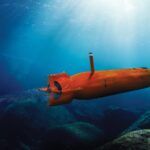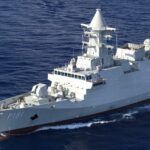Last week, experts from 18 EDA Member States participated in an online workshop organised by the Agency to identify and discuss emerging propulsion technologies for the air and space defence domain.
The Technology Foresight Workshop on Propulsion for Air and Space, conducted from 1 to 3 June, is part of a wider ongoing series of EDA technology foresight workshops which aim at assessing emerging technologies with respect to their likely impact on future defence capabilities.
Supported by Ingeniería de Sistemas para la Defensa de Espana (ISDEFE), the workshop brought together about 50 European subject matter experts in order to focus on emerging propulsion-related technologies for the military air and space domain. It involved members from several EDA Capability & Technology Areas (CapTechs) and Working Groups (WGs), including CapTech Aerial Systems, the Ad-Hoc WG Space, CapTech Missiles and Munitions and CapTech Materials and Structures. The opening part of the event consisted in a plenary session during which the invited keynote speakers introduced the topic and set the scene, followed by separated working sessions during which three expert groups were established at virtual tables. Table discussions defined the landscape of propulsion technologies relevant for future air and space defence, assessed their impact on future military applications and related operational challenges. Beyond that, experts highlighted technological gaps and obstacles and pointed out research needs on the short, medium and long term with respect to military air and space propulsion. The workshop was wrapped up with another plenary session in which summarised results of the table sessions were presented and experts debated possible follow-on and implementation activities.
EDA analysis
The workshop results will be further analysed by EDA in the following weeks with the objective to provide participating Member States an overview and assessment of upcoming propulsion-related needs and implications for future military air and space applications. The analysis will also yield recommendations on potential EU research goals and synergies in the air and space domains and help to address critical gaps within current EU air and space propulsion research portfolio.
Background
EDA’s Technology Foresight Workshops aim to provide input to the EDA process of technology evaluation, including the identification and classification of technology trends and emerging technologies as well as the prioritisation of important technologies with respect to medium- and long-term capability needs. The outcome of the workshops is used as background information for relevant defence technologies and will be integrated in EDA Strategic Research Agendas (SRAs) and their Technology Building Block (TBB) roadmaps, as well as the Overarching Strategic Research Agenda (OSRA) toolchain, the analyses of Key Strategic Activities (KSA) and in the Strategic Context Cases (SCC) of the 2018 Capability Development Plan (CDP).







Leave a Reply